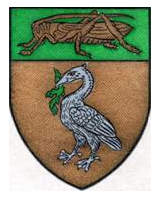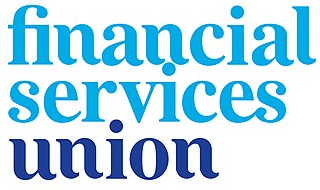Related Research Articles

The London Inter-bank Offered Rate is an interest-rate average calculated from estimates submitted by the leading banks in London. Each bank estimates what it would be charged were it to borrow from other banks. The resulting rate is usually abbreviated to Libor or LIBOR, or more officially to ICE LIBOR. It was formerly known as BBA Libor (for British Bankers' Association Libor or the trademark bba libor) before the responsibility for the administration was transferred to Intercontinental Exchange. It is the primary benchmark, along with the Euribor, for short-term interest rates around the world. However, Libor will not be published any more after end-2021, and market participants are strongly encouraged to transition to other risk-free rates.
Barclays Investment Bank is a British multinational investment bank operating under the auspices of Barclays headquartered in London, England. It provides advisory, financing and risk management services to large companies, institutions and government clients. It is a primary dealer in U.S. Treasury securities and various European Government bonds.

The National Trades Union Congress (NTUC), also known as the Singapore National Trades Union Congress, is the sole national trade union centre in Singapore. NTUC is at the heart of the Labour Movement which comprises 59 affiliated trade unions, 5 affiliated trade associations, 12 social enterprises, 6 related organisations as well as a growing ecosystem of U Associates and enterprise partners. Together, it helms May Day celebrations and organises an annual rally in support of workers' solidarity and commitment to tripartite partnership.

The Association of Scientific, Technical and Managerial Staffs (ASTMS) was a British trade union which existed between 1969 and 1988.

Absa Group Limited (ABGL), and originally Amalgamated Banks of South Africa, is a South African-based financial services group, offering personal and business banking, credit cards, corporate and investment banking, wealth and investment management, as well as bancassurance.

Martins Bank was a London private bank, trading for much of its time under the symbol of “The Grasshopper”, that could trace its origins back to the London goldsmiths. Martins agreed to its acquisition by the Bank of Liverpool in 1918. The Bank of Liverpool wanted Martins to give it a London presence and a seat on the London Bankers' Clearing House; the Martins name was retained in the title of the enlarged bank which was known as The Bank of Liverpool and Martin's Limited. The title was shortened to Martins Bank Limited in 1928 at the insistence of the directors of the Lancashire and Yorkshire Bank when it was bought by the Bank of Liverpool and Martins. The head office and managerial control remained firmly in Liverpool, cementing Martins' place as the only English national bank to have its head office outside London.

The Modern Records Centre (MRC) is the specialist archive service of the University of Warwick in Coventry, England, located adjacent to the Central Campus Library. It was established in October 1973 and holds the world's largest archive collection on British industrial relations, as well as archives relating to many other aspects of British social, political and economic history.

Advance is a certified, independent trade union affiliated to the TUC representing workers within the bank Santander UK, the UK subsidiary of Santander Group. The union was formerly known as the Abbey National Group Union (ANGU) before it expanded to include staff of Alliance & Leicester and Bradford & Bingley following their acquisitions by Santander. Its aims are the supporting and representing its members in all aspects of their employment.
The Bank Employees Union (BEU), a former trade union in Trinidad and Tobago, started as a staff association in 1974 out of a consultative committee which was adopted with partners from other banks in the Barclays group.

The Financial Services Union (FSU) is a trade union representing staff in the finance sector in the Republic of Ireland, Northern Ireland, and those employed by Irish financial institutions in Great Britain and overseas.

The Banking, Insurance and Finance Union (BIFU) was a British trade union.

UNIFI was a trade union representing workers in the finance sector in Britain. The name UNiFI was briefly adopted by the Barclays Group Staff Union in 1999. Later in the year, the union merged with the Banking, Insurance and Finance Union and the NatWest Staff Association, and the new organisation chose the very similar name "UNIFI". In 2004, UNIFI merged with Amicus. The organisation's general secretary was Ed Sweeney, and the national secretary was Rob MacGregor.

Barclays plc is a British multinational investment bank and financial services company, headquartered in London, England. Apart from investment banking, Barclays is organised into four core businesses: personal banking, corporate banking, wealth management, and investment management.
The Libor scandal was a series of fraudulent actions connected to the Libor and also the resulting investigation and reaction. Libor is an average interest rate calculated through submissions of interest rates by major banks across the world. The scandal arose when it was discovered that banks were falsely inflating or deflating their rates so as to profit from trades, or to give the impression that they were more creditworthy than they were. Libor underpins approximately $350 trillion in derivatives. It is currently administered by Intercontinental Exchange, which took over running the Libor in January 2014.

The Irish Congress of Trade Unions, formed in 1959 by the merger of the Irish Trades Union Congress and the Congress of Irish Unions, is a national trade union centre, the umbrella organisation to which trade unions in both the Republic of Ireland and Northern Ireland affiliate.
The forex scandal is a financial scandal that involves the revelation, and subsequent investigation, that banks colluded for at least a decade to manipulate exchange rates for their own financial gain. Market regulators in Asia, Switzerland, the United Kingdom, and the United States began to investigate the $4.7 trillion per day foreign exchange market (forex) after Bloomberg News reported in June 2013 that currency dealers said they had been front-running client orders and rigging the foreign exchange benchmark WM/Reuters rates by colluding with counterparts and pushing through trades before and during the 60-second windows when the benchmark rates are set. The behavior occurred daily in the spot foreign-exchange market and went on for at least a decade according to currency traders.
The NatWest Staff Association (NWSA) was a trade union representing staff at the NatWest Bank in the United Kingdom.
The Union for Woolwich Staff was a trade union representing workers at the Woolwich Building Society in the United Kingdom.
References
- ↑ Arthur Marsh and John B. Smethurst, Historical Directory of Trade Unions, vol.5, pp.282-285